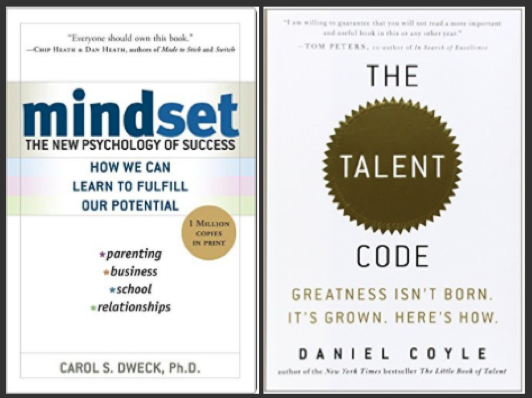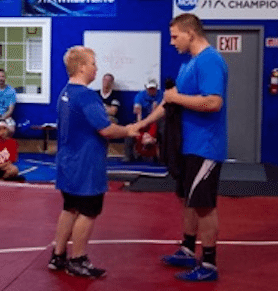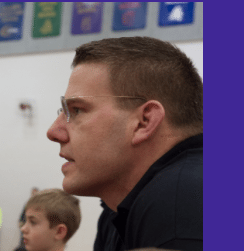May 27, 2016
Achieving Peak Mental Performance – Factor #7: Let ’em struggle
 |
‘The real goal: finding ways to constantly reach past the edge of your current ability.The real lesson of 10K is not about quantity; it’s about quality. It’s about getting the maximum possible gain in the shortest amount of time — and to get that, you don’t focus on the time, but on the gain. You put your focus on improving the practice, which happens two ways: through better methods or increased intensity.To be clear:1. Certain kinds of learning — deep, or deliberate practice — are transformative.
2. That transformation is a construction process.
3. That construction process depends on your intensive reaching and repeating in the sweet spot on the edge of your ability.’
- Construct developmental stages that kids graduate from.
- Melody Shuman, founder of a martial arts school called Skillz Connect, identifies 7 or 8 skills appropriate for the age. She uses the Goldilocks concept to define these skills – Not too hot, not too cold, but just the right level that is a slight challenge, but attainable. Then she will focus on one of these in each practice. They have a test at the end of the practice, and if they pass they get their ‘stripe’ for that skill.
- After they have passed the test for each of the skills, they graduate to the next level. Moving up a level is a big recognition and there is a group celebration.
- Spend the time listening to 2 great podcasts on this subject:
- Melody Shuman, WYC episode 64 – Check it out
- Robert Murphy, WYC episode 69 – Check it out
- Lee Miller from Elite Hoops Basketball calls it ‘Living by numbers’ – They have created 15 core drills that can be measured numerically. They keep track of the results, then they focus on improvement.
- Fear of failure- Great analogy – Olaniyi Sobomehin, former Saints’ running back and founder of I’mNotYou.com, said his son hates to lose and might quit in the middle of a race. So he used the analogy of how obsessed his son is with Mario Kart to beat a level – when he fails to complete a level – he doesn’t quit, he keeps pushing reset until he eventually will beat the level. So use this analogy to show your athlete the type of passion you need to accomplish something – quitting is the only way you will fail.
- Scott Rosberg from Proactive Coaching reinforced that as a coach, be sure to use the words: ‘Look what you’ve become!’ or ‘Look what you were able to figure out’ – instead of taking any credit yourself.



